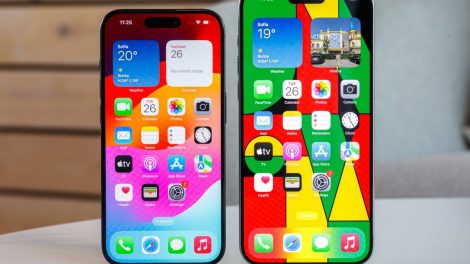Android Is Now Using AI to Upgrade Your Phone’s Closed Captions. Google’s recent efforts in leveraging AI to enhance accessibility features have set a new standard, and the improvements to closed captioning reflect this commitment. If you’re someone who relies on captions for better comprehension or accessibility, these updates are transformative, offering a seamless experience tailored to a wide range of user needs.
Enhancing Accessibility Through AI
Closed captions have long been a staple for individuals who are deaf or hard of hearing, but their utility extends to anyone seeking a better understanding of video content. Traditional closed captioning often relied on pre-generated text or basic speech-to-text engines, which, while functional, left much to be desired in terms of accuracy and context. With AI now powering this feature, Android devices can provide captions that are more precise, contextually aware, and adaptive to varying audio qualities.

At the core of this innovation lies machine learning models designed to interpret not only spoken words but also the nuances of speech, background noise, and even multiple speakers. These models process audio in real time, offering captions that keep pace with live streams, recorded videos, and even phone calls. The result is an enhanced user experience that feels intuitive and natural.
The Technology Behind the Upgrade
Android’s advanced closed captioning system leverages deep neural networks, a technology that allows machines to learn from vast datasets. These networks are trained on diverse audio samples, ranging from professional recordings to noisy environments, ensuring the captions work reliably in various situations.
The introduction of Natural Language Processing (NLP) algorithms further enhances the system by enabling it to understand the context of conversations. For example, the AI can differentiate between homophones—words that sound the same but have different meanings—based on the surrounding dialogue. This contextual awareness not only improves the accuracy of captions but also makes them more coherent and easier to follow.
Additionally, the AI-powered system supports multiple languages and dialects, a feature that is particularly valuable in regions where multilingualism is common. The ability to switch seamlessly between languages during a conversation is a testament to the system’s versatility.
Practical Applications and User Benefits
The implications of this upgrade extend beyond basic accessibility. For instance, if you’re attending a virtual meeting in a noisy environment or watching a video in a language you’re still learning, the enhanced captions can bridge communication gaps. Students can use the feature to transcribe lectures in real time, while professionals can benefit from accurate captions during international conferences or webinars.
Android’s AI-driven captions also support personalization. You can adjust the size, color, and placement of captions to suit your preferences, ensuring that the feature integrates seamlessly with your overall device experience.
| Feature | Benefit |
|---|---|
| Real-time transcription | Captions appear instantaneously for live audio and video content. |
| Multilingual support | Provides accurate captions across various languages and dialects. |
| Customization options | Allows users to modify caption appearance for better readability. |
| Contextual accuracy | Uses AI to understand and convey the meaning behind spoken words accurately. |
Challenges and Limitations
Despite these advancements, the system is not without its challenges. Factors such as strong accents, extremely noisy environments, or overlapping speakers can still pose difficulties. While AI is adept at filtering noise and distinguishing voices, it is not infallible. However, ongoing improvements in machine learning models are expected to address these limitations over time.
Another consideration is privacy. Since the feature processes audio data in real time, users may have concerns about how their information is handled. Google has emphasized that the system operates locally on devices whenever possible, ensuring that sensitive data does not leave the user’s control.
The Future of AI in Accessibility
The enhancements to Android’s closed captioning are part of a broader trend in using AI to create more inclusive technologies. As AI continues to evolve, you can expect features like real-time translations, voice modulation detection, and emotion recognition to become integrated into everyday devices.
These advancements are not merely about making technology more convenient; they are about creating a world where barriers to communication and understanding are systematically dismantled. For Android users, this means a more intuitive, connected, and accessible experience.
Android’s use of AI to upgrade closed captions represents a leap forward in accessibility technology. By addressing the limitations of traditional systems and introducing features that cater to diverse user needs, this innovation is setting a new standard. As you explore these capabilities, you’ll find that they not only enhance your experience but also pave the way for a more inclusive future. Whether you’re using captions out of necessity or preference, the AI-driven enhancements ensure a smoother, more reliable, and personalized interaction with your device.










Add Comment